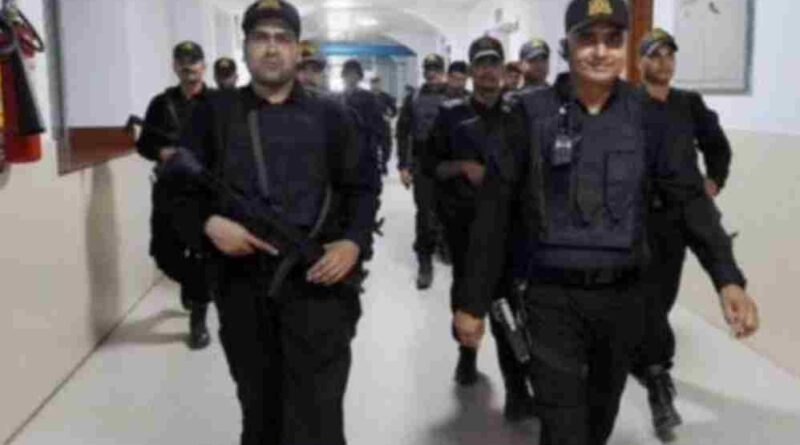Gujarat ATS Uncovers Terror Module with Alleged Global Links, Foils Potential Threat
In a swift and high-stakes operation, Gujarat’s Anti-Terrorism Squad (ATS) has once again demonstrated the razor-sharp vigilance that has become its signature. Acting on specific intelligence inputs, the elite counter-terrorism unit uncovered a terror module allegedly linked to an international jihadist network, leading to the arrest of four individuals who were reportedly plotting activities with far-reaching consequences.
The suspects, all Indian nationals, were apprehended from different parts of the state after days of coordinated surveillance and shadowing. While official sources are remaining tight-lipped about some operational details for security reasons, early reports suggest that these individuals were in direct contact with operatives of a notorious terror outfit operating primarily out of the Afghanistan-Pakistan region. The group, known for its allegiance to transnational jihadist ideologies, has been on global security radars for years.
What makes this bust particularly significant is not just the disruption of an isolated plan, but the potential long-term threat it neutralizes. Preliminary investigations indicate that the arrested individuals were not only being radicalized online but were also being primed for direct action — reportedly including recruitment, logistical support, and possibly even local-level attacks. Authorities say the suspects had already begun planning a recruitment drive targeting vulnerable youth, with encrypted online communication playing a key role in their operations.
Officials involved in the crackdown shared that a major breakthrough came after digital evidence was retrieved and analyzed from the suspects’ electronic devices, including mobile phones, laptops, and online chat logs. These records pointed to a larger web of ideological and possibly financial support. The accused had reportedly been receiving instructions from handlers based outside India and were in the early stages of creating sleeper cells.
Security personnel also recovered materials allegedly meant for propaganda, training, and indoctrination — a worrying sign that this wasn’t a lone act, but a calculated move in a longer strategy to destabilize regional harmony.
The ATS has been conducting follow-up searches and interrogations, trying to trace the origin of communication and any potential arms supply or funding channels. Central agencies have now joined hands in a broader effort to track down any co-conspirators and plug any security loopholes.
This incident serves as a sobering reminder that even as the world becomes increasingly interconnected, so do the networks of extremist ideologies. Yet, it also highlights the evolving competence of India’s anti-terror agencies in preempting threats and dismantling hostile intentions before they can take root.
Citizens, meanwhile, are urged to remain vigilant, report suspicious activity, and avoid spreading panic or unverified information. In the words of one senior ATS officer involved in the operation, “The biggest weapon against terror is public awareness and unity. The fight is not just about guns and intelligence. It’s about keeping our communities strong and informed.”
As investigations continue, the nation watches closely — not with fear, but with renewed trust in its protectors.
Disclaimer
The information and content shared on digitalgithub.com — including articles, blogs, news, guides, and other resources — is intended for general informational and educational purposes only. We do not guarantee the completeness, reliability, or suitability of any information. Always seek the guidance of a qualified professional before making decisions based on the information you read. Use this site at your own risk.

